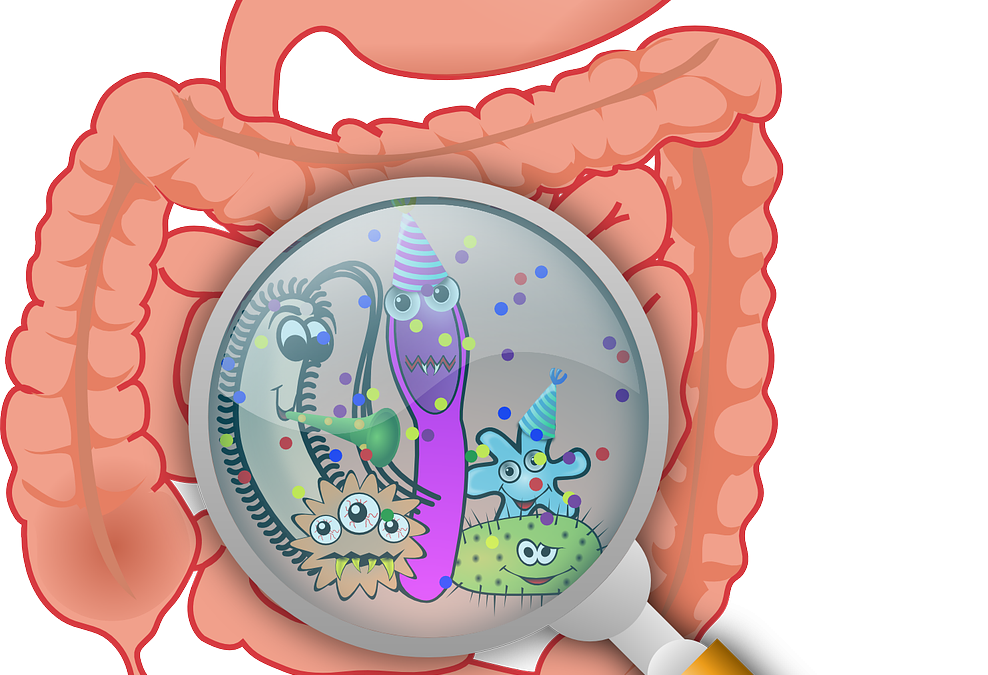So often, clients tell me they have approached their health care practitioners following the onset of IBS symptoms and been told there is nothing that can be done apart from symptom management. Often, they’ve been recommended the FODMAP diet and although this can be a really useful strategy in the short term to detect if certain foods are triggering their symptoms, it often only gives temporary symptomatic relief. The FODMAP diet should only be followed for a few weeks as it can cause other health issues if followed long term.
My work is all about trying to assess root causes with the aim of bringing about long-lasting resolution of symptoms. I do this by taking a comprehensive medical/symptom history and food diary – I like to also understand how much people feel stress is a factor in the onset of their IBS. I frequently suggest people work with a therapist or try some gut focused hypnotherapy which can have profound results alongside making dietary changes.
The key 4 root causes of IBS are:
- Bacterial overgrowth/microbiome (the rich community of bacteria/yeast/fungi and protozoa in our intestines) imbalance in the small or large intestine. Microbiome imbalance in the small intestine is known as small intestinal bacterial overgrowth (SIBO). Studies suggest that around 60-70% of people with IBS have SIBO. This is now my specialist area and I receive frequent referrals for nutritional support from a Bristol based Consultant Gastroenterologist when she diagnoses this in her patients (I was so excited to be approached by a digestive health consultant with an interest in the microbiome). If SIBO is present, dietary strategies and anti-microbials can help to resolve this.
- Food allergies or intolerances – the most common triggers are wheat/gluten/dairy/eggs/soya/citrus/nightshades/preservatives and emulsifiers. Sometimes the simplest way of assessing whether these foods are causing problems is for people to carry out a short-term exclusion of the suspected trigger foods and to keep a note of how they feel (elimination diets can be more reliable than allergy testing).
- Stress – Our gut is often called our Second Brain – when we are stressed our capacity to digest food is reduced. The Vagus nerve plays a key role here which is one of the longest nerves and connects our brain with our digestive system and many other organs in our body.
- Gut infections – a single episode of bacterial gastroenteritis can trigger post-infectious IBS. I have access to a blood test (ibs-smart test) which can help detect this. It’s only recently been available in the UK.
The best way to identify underlying causes is to carry out functional digestive testing (stool analysis or breath tests for SIBO).
Excitingly, one of the top London gastroenterology hospitals recently carried out a study with a lab I use (Genova) and concluded that stool biomarker testing is an appropriate way to identify potentially treatable causes of IBS symptoms. This brings hope to a lot of people who have previously been told that it’s only possible to manage symptoms.
There are now many stool tests available that people can order online. Unfortunately, many don’t give the necessary clinical information I need to make a proper assessment, so always prefer people to use reputable labs like Genova/Biolab or Invivo. I generally suggest clients wait until they have had their initial consultation with me before doing testing, so I can recommend the most appropriate test for their situation.
Although it isn’t essential to do testing, the more fully we understand the underlying causes, the more I can target my recommendations. This is more likely to lead to longer term symptom resolution. If people don’t have the resources for testing, I listen carefully to their current symptom picture/medical history and I’m always particularly interested in what was happening when they first noticed their symptoms (?stress, ?food poisoning, ?antibiotics etc.). We can then trial different strategies and assess their impact.
People often report a huge sense of relief when imbalances are found in the tests – finally they feel there is something tangible to focus on and address. Sometimes they have lost hope (many have been told their IBS is purely psychological) and are concerned they will have to live with their really challenging symptoms long term and stay on a restricted diet. As a self-confessed foodie, although short-term restrictions are sometimes necessary in the therapeutic phase, I always say my aim is to help people to be able to eat as freely as possible over time. Within reason of course!


Recent Comments